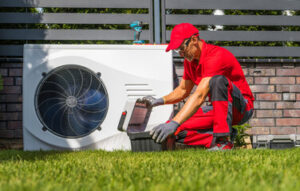If your home or business experiences problems with the plumbing or heating systems, you will want to call a professional. These professionals are known as plumbers or heating engineers. Both professions require a detailed amount of knowledge and training. This training can be obtained through a vocational school or a learn-while-you-earn apprenticeship program. For professional expertise, consult Tidal Plumbing & Heating.
 Plumbing is the system of pipes, tanks, and fixtures that provide water supply, waste removal, and heating/cooling in buildings. Plumbers install, inspect, and repair these systems. They must adhere to strict building codes and regulations and pass a background check before being licensed in their state. Plumbing can be dangerous work, especially if pipes are not properly installed and maintained. This is why it is important to hire a qualified, experienced plumber.
Plumbing is the system of pipes, tanks, and fixtures that provide water supply, waste removal, and heating/cooling in buildings. Plumbers install, inspect, and repair these systems. They must adhere to strict building codes and regulations and pass a background check before being licensed in their state. Plumbing can be dangerous work, especially if pipes are not properly installed and maintained. This is why it is important to hire a qualified, experienced plumber.
Plumbing has a wide range of applications, from the water closets in residential homes to the kitchen sinks and toilets in industrial facilities. Commercial plumbing systems are often larger and more complex than those in residential homes, requiring more water outlets and drains. For example, a large office building may require many more sinks, toilets, and water heaters than a small retail store. In addition, some plumbing jobs involve installing and maintaining “fixtures,” which are exchangeable devices that use water. These include water closets, urinals, bidets, showers, bathtubs, kitchen and utility sinks, drinking fountains, and ice makers.
The word “plumbing” comes from the Latin word for lead, which was used in older pipework. Today, plumbing pipes are typically made of copper or plastic. Regardless of the material, however, all pipes in plumbing systems must meet strict building codes and regulations. This ensures that water and sewage are distributed safely, and that hot and cold water are available when needed. It also prevents dangerous bacteria from entering drinking water supplies. This is why it is important to schedule annual maintenance visits for your home’s plumbing and HVAC systems.
Drain Cleaning
Drain cleaning involves removing any blockage in your home’s plumbing pipes to restore free flow. Whether your clogged drain is in the kitchen, bathroom or somewhere else, this service can help you avoid more serious issues down the road.
Most clogs form when organic waste like food scraps, hair, skin cells and soap scum accumulate inside of your drain lines. In addition, hard water can also cause minerals to build up on pipe and drain wall surfaces over time, further increasing your risk of a clog.
For this reason, it is important to get your drains cleaned regularly. You may be tempted to try to do it yourself using household products, such as baking soda and vinegar. However, these methods are only effective for mild clogs and may damage your pipes.
Professional plumbers use a variety of tools to remove even the most stubborn clogs. For example, they can use a motor-powered snake that is attached to a cable with a blade fastened on the end. This tool is inserted into the affected drain and it cuts apart or breaks up the clog, which allows water to flow freely again.
Another option is a mechanical auger, which is a long piece of metal with a coiled wire on the end. This is also attached to a cable and is fed into the drain until it encounters the clog. The wire is then rotated to break up or pull out the clog.
Besides helping to prevent serious plumbing problems, drain cleaning services can also save you money on your water bills. An undetected water leak in your drain can result in a significant increase in your water usage, which will reflect on your next utility bill. Professionals can spot these hidden leaks and fix them, preventing a potential monetary crisis down the road.
Regular drain cleaning can also help to keep your home smelling fresh and clean. Clogged drains can become breeding grounds for bacteria, fungus and mold that produce foul odors. This can affect your family’s health, particularly if anyone has allergies or other respiratory conditions. Additionally, the moist environment of a clogged drain can lead to a variety of unpleasant insects, such as flies.
